Day 23 – Clark’s Harbour to Ingomar
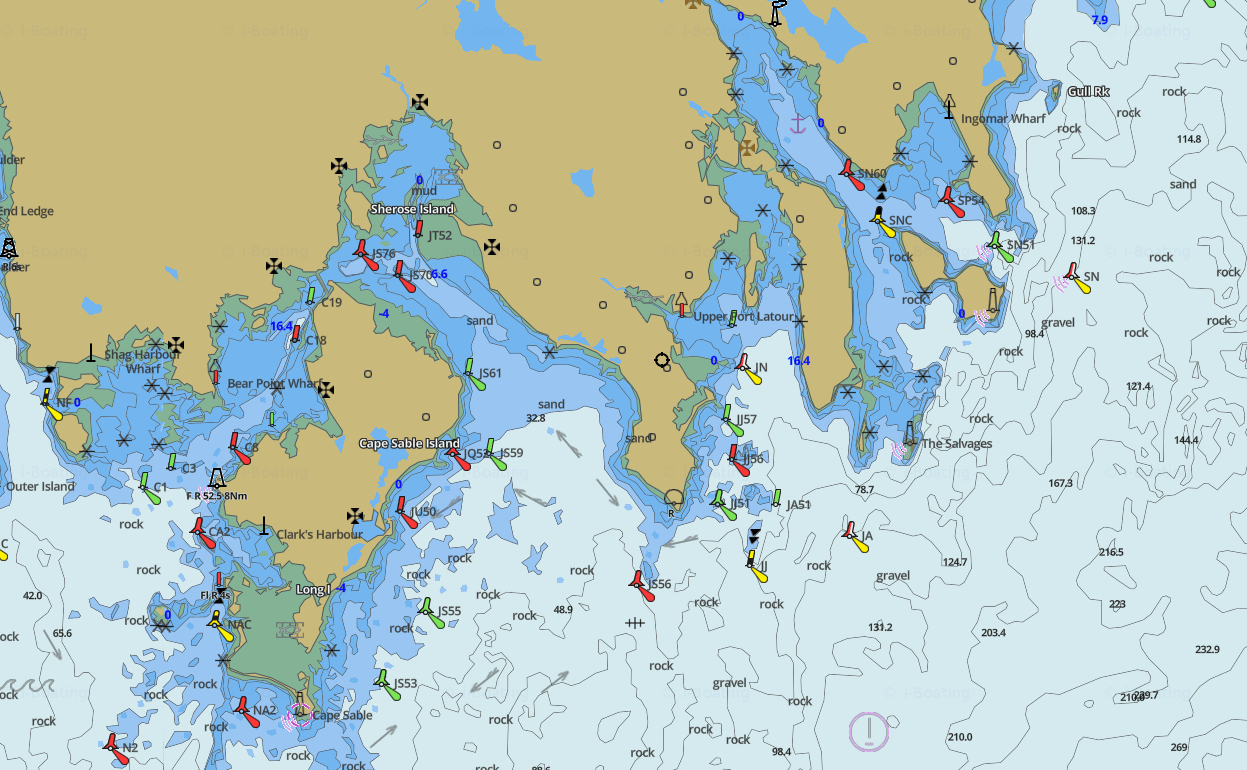
We left Clark’s Harbor with the ebbing tide in order to ride the current on the sail to Cape Negro Island. This was the first day since reaching Nova Scotia that we would be sailing north up her eastern coast.
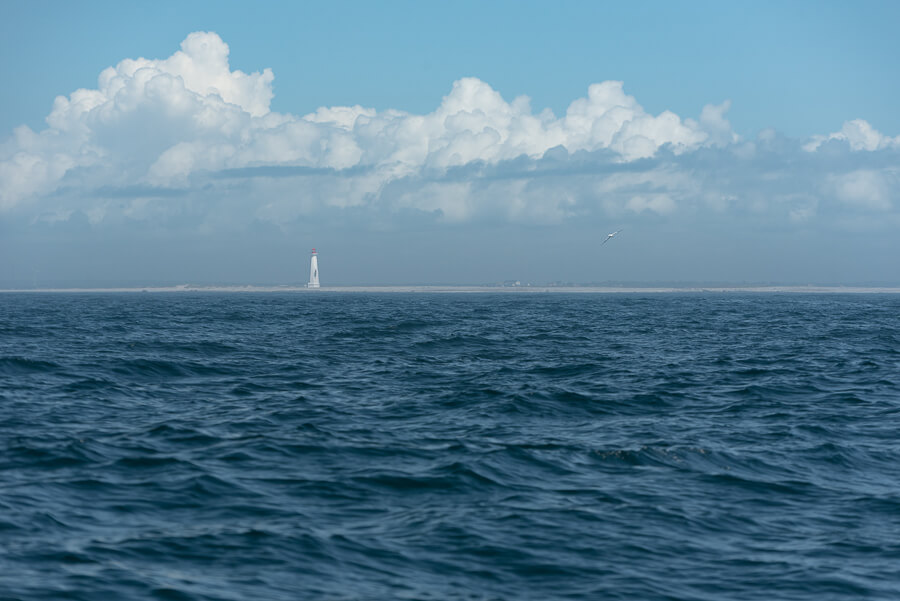
We started south though and as we got out past the southern tip of Cape Sable Island we entered light fog. There, the current was meeting the swell to push up steep choppy waves; Isla was bouncing violently, throwing spray to her sides. We turned northeast to get out of the current and after a few tense pitches found ourselves in calmer waters.

We turned north and sailed uneventful hours towards the southern half of Cape Negro Island. Andrew guided Isla up and around into the eastern cove between the two halves of the island. A thin rocky bar connects the two at low tide. Hook set in the sandy bottom, we rowed the trusty Dingy ashore under gray skies. On the sail over we saw a few small cabins on the shore, but it seemed we were alone on the island. I walked over to get a better look at a rough cut wooden fence nearby, when movement a short distance away caught my eye. We weren’t alone, there was a herd of some eighteen sheep eyeing us nervously from the grassy hill above us.
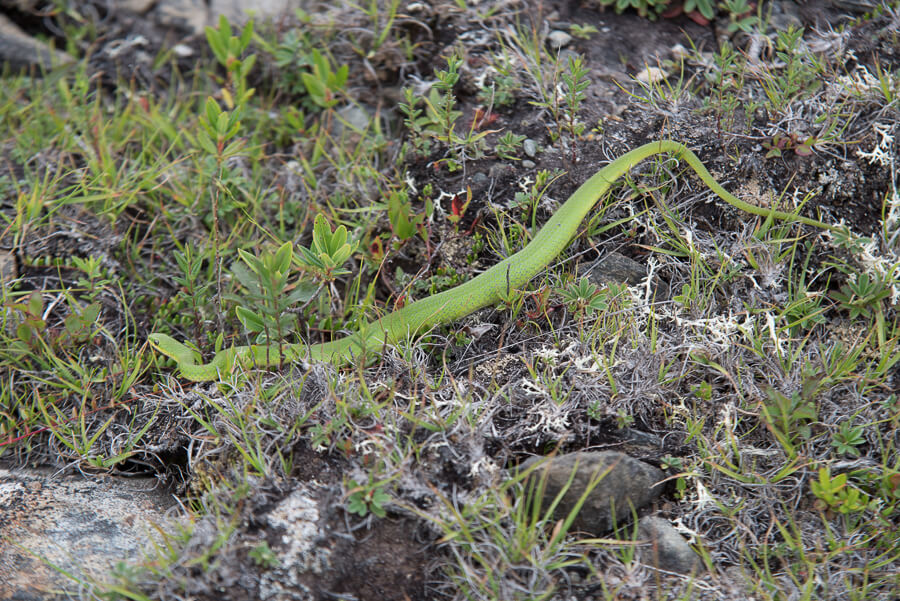
As we walked closer they ran away; this repeated itself a few times as we searched for a trail to the lighthouse. Patches of conifers, shrubs, grass and peat moss covered the land before us. We followed a shadow of a trail through the shrubs, the lower branches were lined with strands of wool. We crested the highest point of the island; the trail became better defined and a few sheep dotted the remaining distance to the lighthouse.
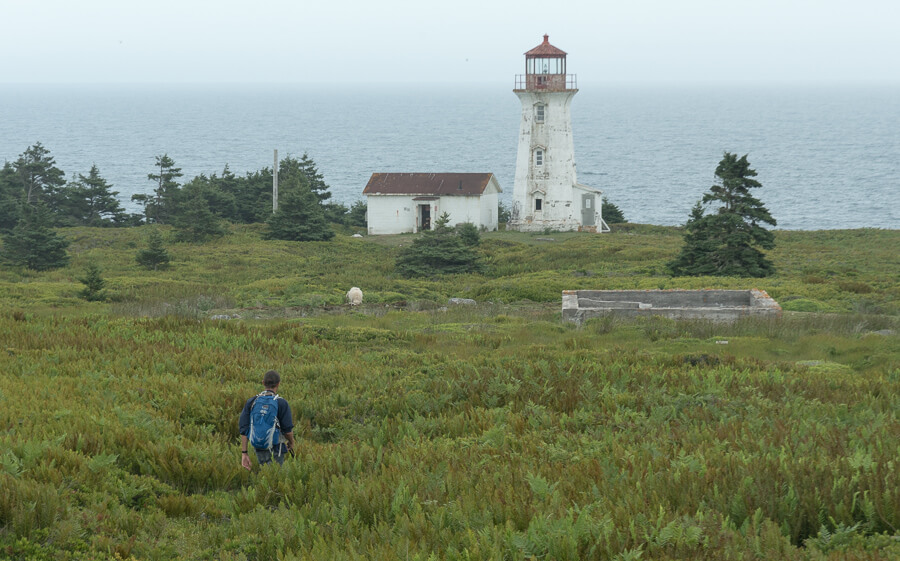
A few moments later we stood at the foot of the weathered lighthouse, white with red accents, signaling ‘you’re in Canada’. A sign discouraged trespassing, but a window at the base was open. So we folded ourselves through and climbed the three decaying ladders to the lantern room. Don’t tell Canada.
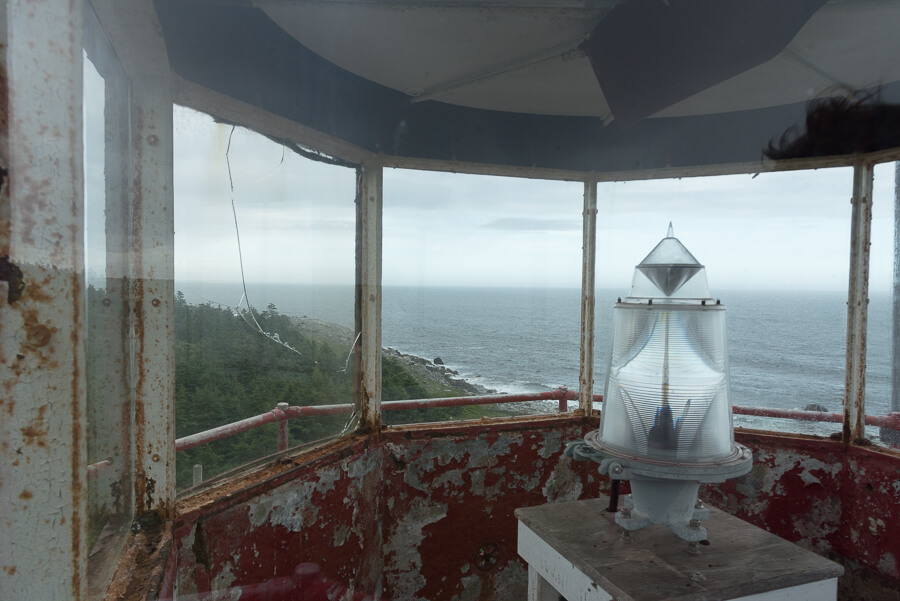
The view was tremendous, a rocky coast wrapped deep green fields, bands of white flashed with each crashing wave. The sheep, gray skies, green fields, and peat moss made the name Nova Scotia feel especially fitting.
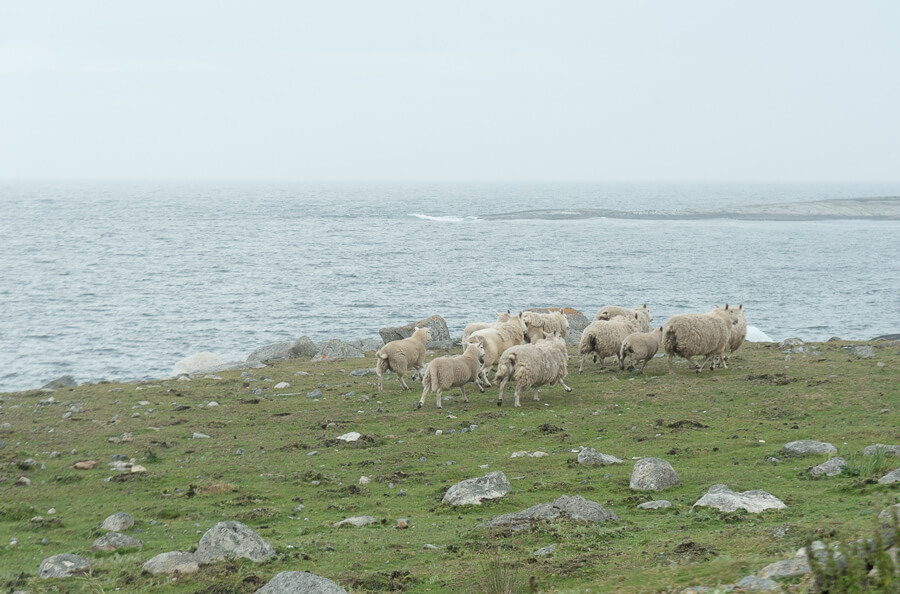
We made a loop out of the way back, annoying many more sheep en route. Fine raindrops began to bounce off our jackets. The shrubs and ferns shrugged the water off as we brushed past. I took the lead on the overgrown trail and after a short distance my jeans were dripping wet.
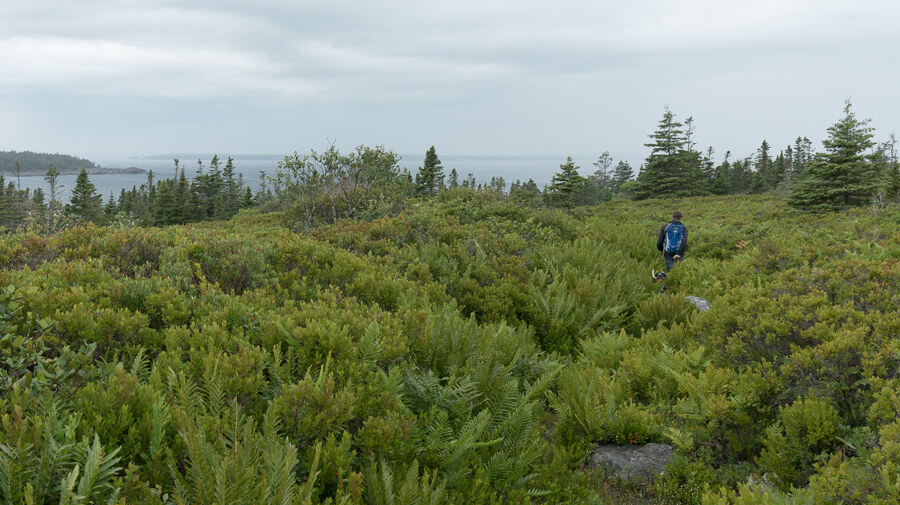
We rowed back to Isla and cooked rice, beans, and tuna for dinner. It felt truly excellent to sit below deck in dry clothes, eating a warm meal. But as we sat there, Isla’s rocking passed sleepless levels, the waves were coming over the bar we were relying on for shelter. With an hour of dim gray light left, we raised the anchor and motored across the shallow bay to Ingomar.
I caught a glimpse of a triangular dorsal fin in the gloom, but couldn’t make heads or tails of it. We pulled into the breakwater and rafted up to an empty lobster boat, hoping the lack of equipment indicated it would not be leaving before sunrise. The small port contained little more than the boats themselves and a small seafood processing building. We stretched our legs for a few minutes before returning to Isla to sleep.
2 Replies to “Day 23 – Clark’s Harbour to Ingomar”
Will & Andrew – what happened next? I gather the cruise ended sometime after this, but I can find no further posts. It’s June 2024 and I’m considering a similar voyage.
Great blog and love the writing and photos